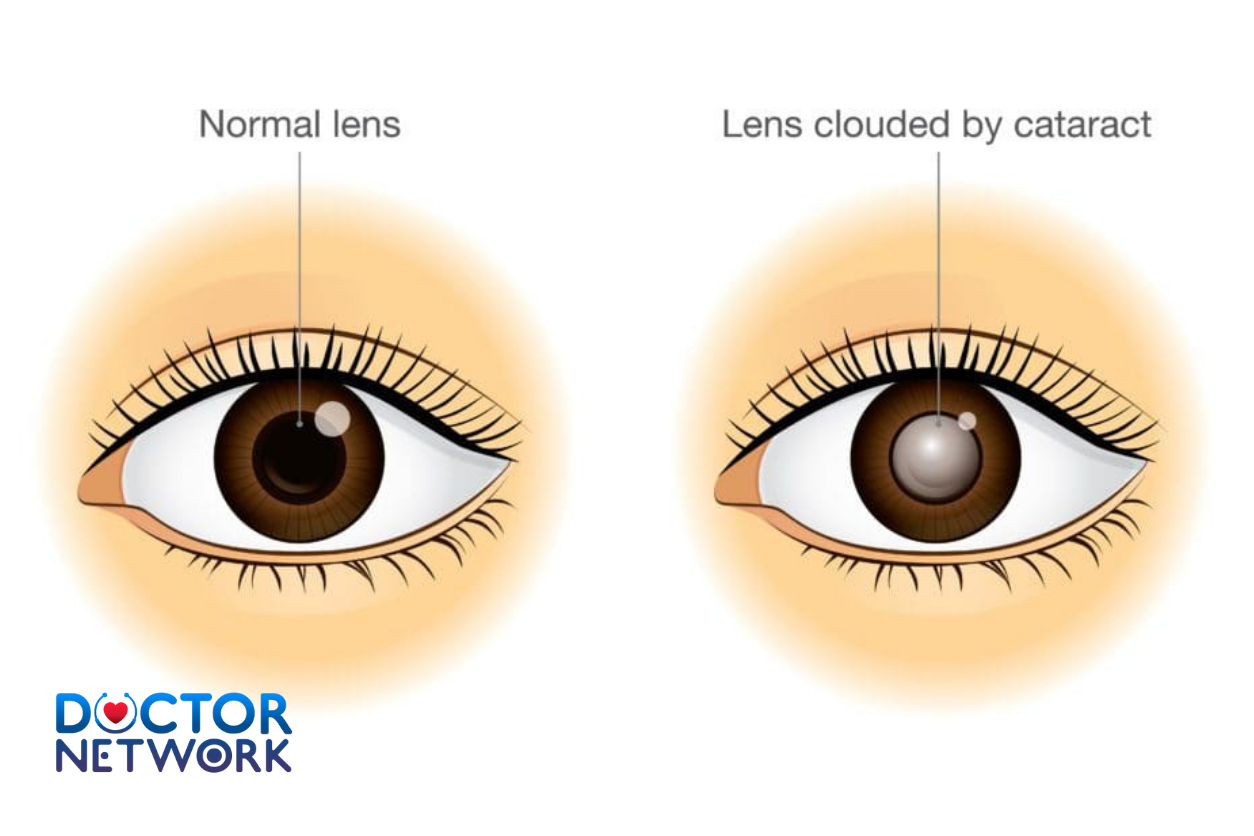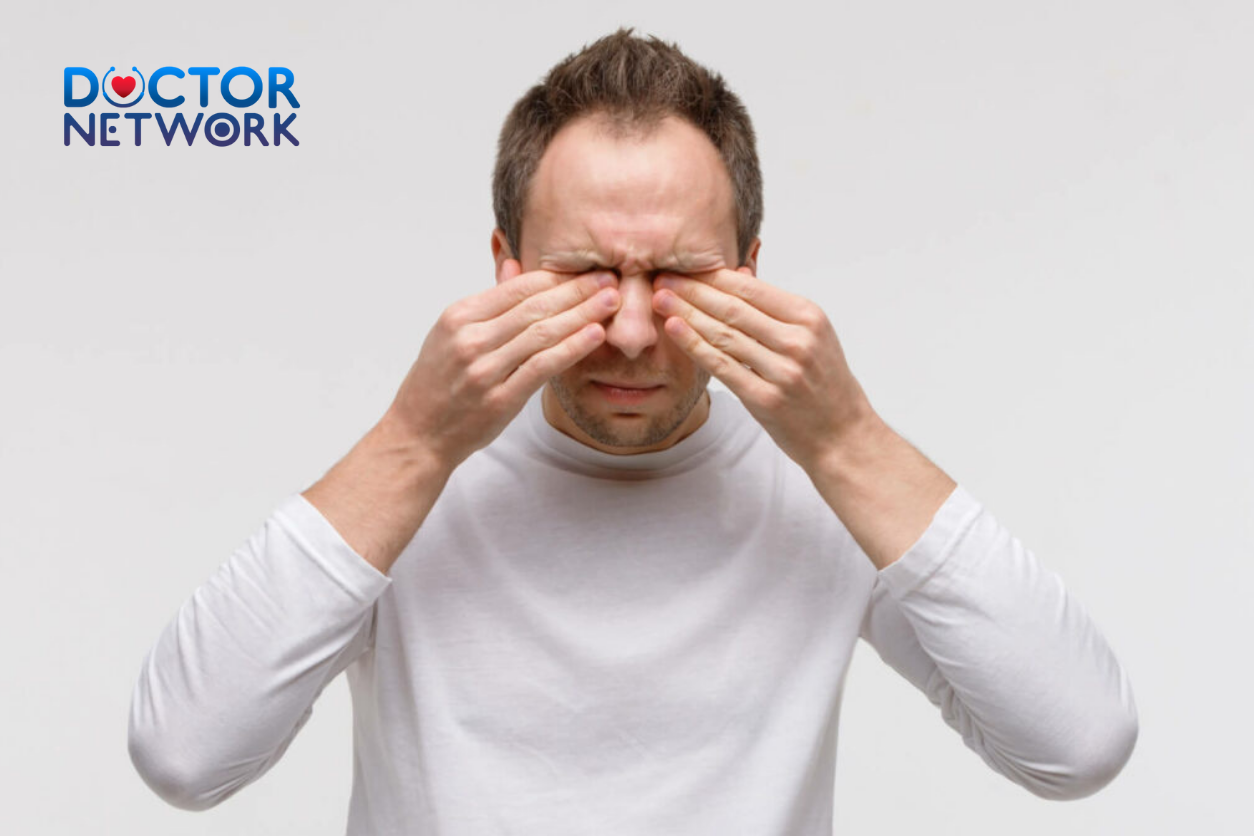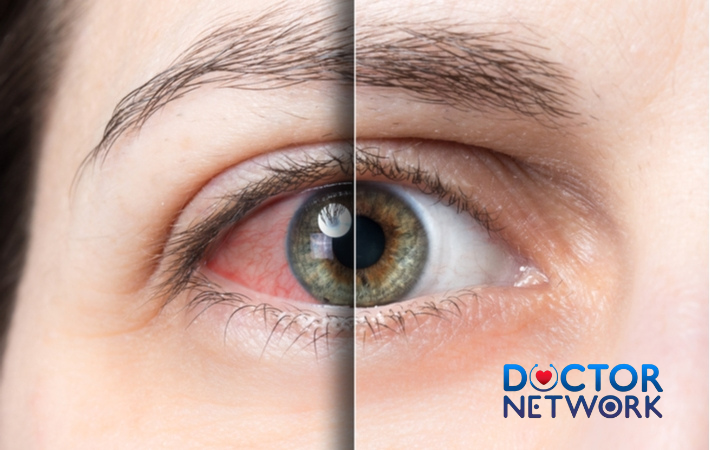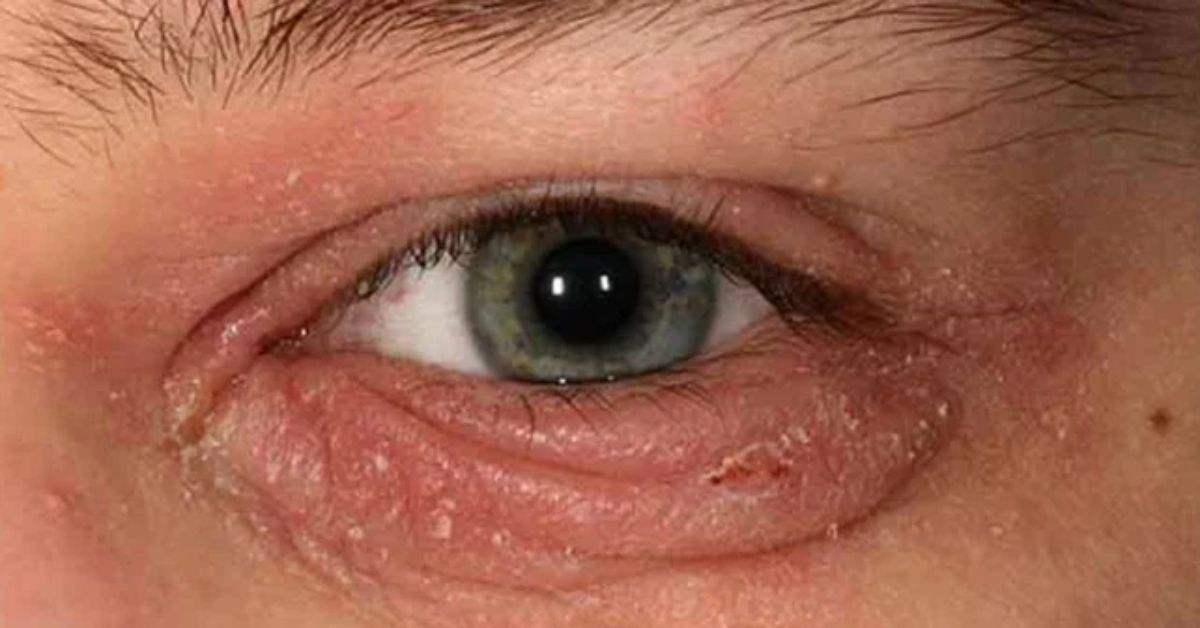Myopia is becoming increasingly common, especially among individuals who regularly work with computers or are exposed to electronic devices. If you have mild myopia (1 – 2 diopters), you are likely seeking methods to Reduce 1 – 2 diopter myopia without surgery. This article provides a comprehensive guide along with expert advice to help you improve mild myopia.
Understanding Mild Myopia
- What is myopia? Myopia is a refractive error of the eye that makes it difficult for patients to see distant objects clearly. Light entering the eye focuses in front of the retina instead of directly on it, resulting in blurred vision.
- 1 – 2 diopter myopia: At this level of myopia, you can see nearby objects relatively clearly but may have some difficulty observing objects at greater distances.
- Causes of myopia: Myopia can result from various factors, including
Genetics: If your parents have myopia, your risk of developing this refractive error is higher.
Eye habits: Reading, using computers at close distances, and poor lighting conditions can increase the risk of myopia.
Environment: Lack of outdoor activities and excessive exposure to blue light from electronic devices can contribute to myopia.
Non-surgical methods to reduce myopia
A. Recommended mainstream methods
- “Reduce 1 – 2 diopter myopia without surgery” – Wearing appropriate prescription glasses: This is the most important and effective solution for controlling myopia and achieving clear vision. You should visit an eye doctor to accurately determine your myopia degree and obtain a suitable prescription.
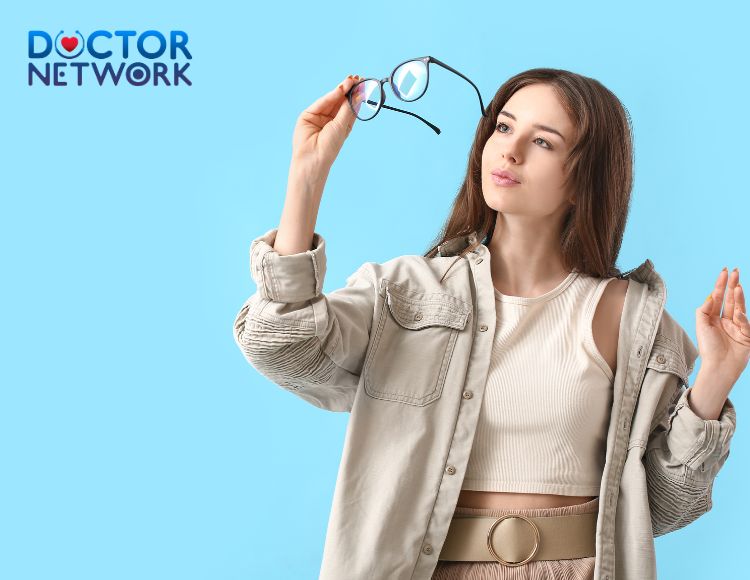
“reduce myopia by 1-2 degrees without surgery” – Wear glasses with the right prescription
- Eye exercises for myopia: Simple eye exercises can help relax eye muscles, improve focusing ability, and thereby support slowing the progression of myopia. Refer to reputable guides for accurate execution.
- “Reduce 1 – 2 diopter myopia without surgery” – Lifestyle changes:
Preventing worsening myopia: Ensure proper reading posture and distance, adequate lighting, limit continuous use of electronic devices, and regularly rest your eyes.

“Reduce myopia by 1-2 degrees without surgery” – Change living habits
Eye care without surgery: Resting your eyes for a few minutes, applying eye compresses, gently massaging the eye area… all help reduce eye strain.
B. Supplementary methods
- “Reduce 1 – 2 diopter myopia without surgery” – Nutrition for healthy eyes: Increase intake of foods rich in vitamin A (carrots, animal liver…), vitamin C (oranges, grapefruits…), vitamin E (various nuts…), as well as foods containing lutein and zeaxanthin (dark green leafy vegetables) to nourish and protect the eyes.

“Reduce myopia by 1-2 degrees without surgery” – Eating for healthy eyes
- “Reduce 1 – 2 diopter myopia without surgery” – Limiting myopia environment: Utilize natural light, spend time participating in outdoor activities, and look at distant objects to help relax and regulate eyes better.
Important notes from experts
- “Reduce 1 – 2 diopter myopia without surgery” – Regular eye exams: Monitoring myopia status is crucial, especially for young children. It is recommended to have an eye exam at least every 6 months to devise appropriate intervention plans.
- Beware of unsupported methods: Do not hastily believe in exaggerated advertisements claiming to cure myopia quickly without surgery. Thoroughly research information and prioritize scientifically based methods.
- “Reduce 1 – 2 diopter myopia without surgery” – Combination of multiple methods: For the best results in reducing mild myopia, perseverance in combining multiple approaches is necessary.
- Adopting a healthy lifestyle: This key factor is beneficial not only for the eyes but also enhances overall health.
Some frequently asked questions about “Reduce 1 – 2 diopter myopia without surgery”
Here are 5 related questions about “Reduce 1 – 2 diopter myopia without surgery”:
Question 1: Do eye exercises really help reduce myopia?
Answer: “Reduce 1 – 2 diopter myopia without surgery” – Scientifically designed eye exercises can strengthen eye muscles, improve focusing ability, and assist in controlling myopia. However, they cannot completely cure myopia and should be combined with other methods.
Question 2: Are there any foods that help improve 1 – 2 diopter vision?
Answer: “Reduce 1 – 2 diopter myopia without surgery” – No foods cure myopia. However, a diet rich in vegetables and fruits containing vitamin A, C, E, lutein, zeaxanthin… provides nutrients that support healthy eyes and effectively assist in reducing mild myopia alongside other methods.
Question 3: What is the effect of eye area massage on people with myopia?
Answer: “Reduce 1 – 2 diopter myopia without surgery” – Properly performed eye massage enhances blood circulation to the eyes, reduces eye muscle strain, and promotes relaxation. This non-surgical eye care method is particularly useful for individuals with myopia who often engage in stressful work.
Question 4: Do children with 1 – 2 diopter myopia need to wear glasses?
Answer: It is advisable to take children to a specialist for accurate advice. Wearing correct prescription glasses is crucial for clear vision, aiding in myopia control and preventing disruptions to daily activities and learning.
Question 5: Can 1 – 2 diopter myopia heal on its own with non-surgical methods?
Answer: Myopia typically does not completely resolve on its own. However, actively applying methods such as wearing appropriate glasses, adjusting eye habits, maintaining a healthy diet for the eyes… can help slow myopia progression and improve visual health.
Some scientific evidence related to “Reduce 1 – 2 diopter myopia without surgery”
Here are some scientific references related to “Reducing 1 – 2 diopter myopia without surgery”:
- Study on the effectiveness of eye exercises for myopia:
Author: Mutti et al. (2020) Journal: Optometry & Vision Science Method: Randomized clinical trial Results: The group performing eye exercises showed significant improvement in visual acuity after 12 weeks compared to the non-exercise group.
- Influence of diet on eye health:
Author: Wong et al. (2016) Journal: Investigative Ophthalmology & Visual Science Method: Meta-analysis study Results: A diet rich in vitamin A, C, E, lutein, and zeaxanthin is associated with reduced risk of age-related macular degeneration, a major cause of visual impairment.
- Effect of eye massage on people with myopia:
Author: Lee et al. (2019) Journal: Journal of Korean Medical Science Method: Randomized clinical trial Results: The eye massage group showed significant reduction in eye fatigue and temporary improvement in visual acuity compared to the non-massage group.
- Efficacy of wearing correct prescription glasses for myopia:
Author: Parthasarathy et al. (2015) Journal: Cochrane Database of Systematic Reviews Method: Systematic review and meta-analysis Results: Wearing correct prescription glasses improves visual acuity and quality of life for individuals with myopia.
- Importance of regular eye exams:
Author: American Academy of Ophthalmology (AAO) Source: AAO website Content: Regular eye exams help early detection of visual problems, including myopia, allowing timely treatment to prevent complications.
Note:
The scientific evidence provided is for reference purposes. The effectiveness of non-surgical methods in reducing mild myopia may vary depending on individual cases. Consultation with a specialist is recommended to receive advice and develop an appropriate treatment plan.
Conclusion
“Reduce 1 – 2 diopter myopia without surgery” – Mild myopia (1 – 2 diopters) is a common condition that affects the quality of life for many individuals. While it cannot be completely cured, you can effectively reduce mild myopia and improve visual acuity through non-surgical methods.
References:
https://moh.gov.vn/
https://benhvienmathanoi.gov.vn/
http://www.hoinhankhoa.vn/
Kiểm Duyệt Nội Dung
More than 10 years of marketing communications experience in the medical and health field.
Successfully deployed marketing communication activities, content development and social networking channels for hospital partners, clinics, doctors and medical professionals across the country.
More than 6 years of experience in organizing and producing leading prestigious medical programs in Vietnam, in collaboration with Ho Chi Minh City Television (HTV). Typical programs include Nhật Ký Blouse Trắng, Bác Sĩ Nói Gì, Alo Bác Sĩ Nghe, Nhật Ký Hạnh Phúc, Vui Khỏe Cùng Con, Bác Sỹ Mẹ, v.v.
Comprehensive cooperation with hundreds of hospitals and clinics, thousands of doctors and medical experts to join hands in building a medical content and service platform on the Doctor Network application.














